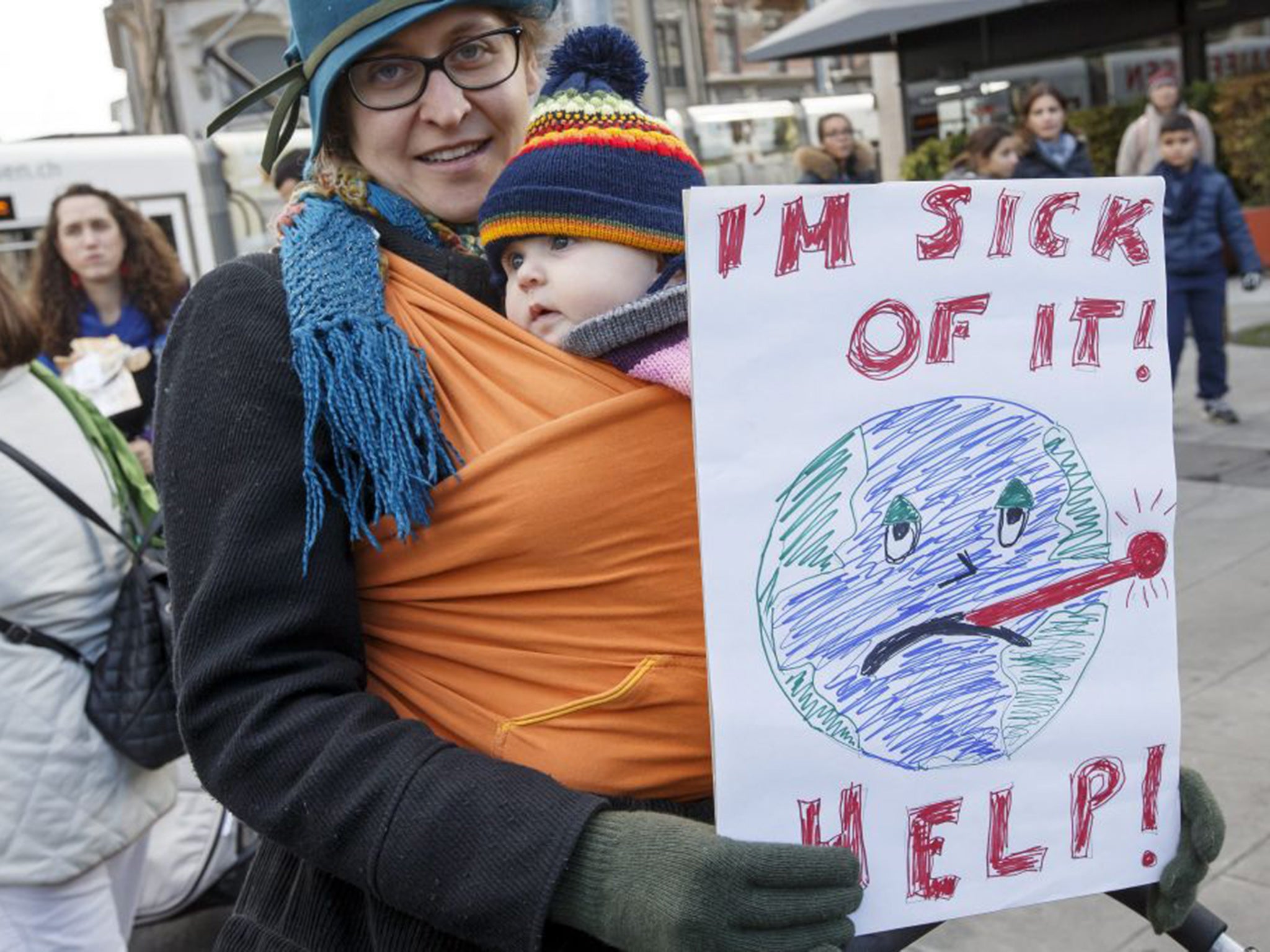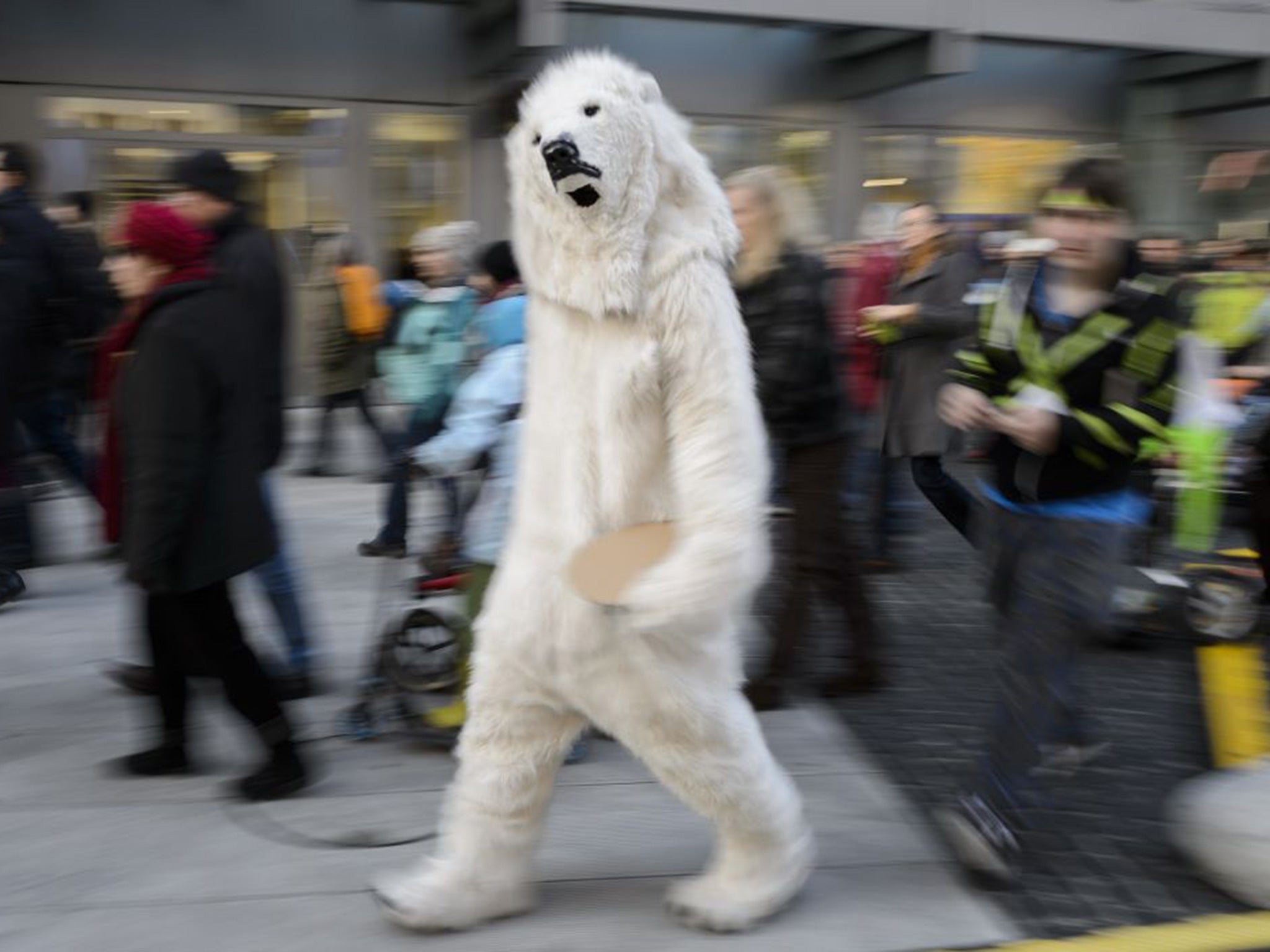Paris climate change talks: What the different groups attending expect from these crucial meetings
The UN wants to limit global warming to 2C, but international co-operation has been slow in coming

Your support helps us to tell the story
From reproductive rights to climate change to Big Tech, The Independent is on the ground when the story is developing. Whether it's investigating the financials of Elon Musk's pro-Trump PAC or producing our latest documentary, 'The A Word', which shines a light on the American women fighting for reproductive rights, we know how important it is to parse out the facts from the messaging.
At such a critical moment in US history, we need reporters on the ground. Your donation allows us to keep sending journalists to speak to both sides of the story.
The Independent is trusted by Americans across the entire political spectrum. And unlike many other quality news outlets, we choose not to lock Americans out of our reporting and analysis with paywalls. We believe quality journalism should be available to everyone, paid for by those who can afford it.
Your support makes all the difference.Almost 150 heads of state, including David Cameron, Barack Obama and Indian Prime Minister Narendra Modi, are heading to Paris for the start of the most important environmental meeting for decades.
Ahead of the summit, more than 175 countries have tabled pledges (known as intended nationally determined contributions, or INDCs) to cut their carbon emissions which, if enacted, would be enough to limit global warming to 2.7C. But the United Nations has pledged to limit climate change to 2C – and would much prefer it to be 1.5C.
This means there is much work to be done in Paris. Although nobody is expecting an agreement that will guarantee to limit global warming to 2C, the UN climate chief Christiana Figueres is determined to enshrine a process that paves the way for the world to be able to meet that target further down the line. Here are some of the different interest groups and what they want from Paris:
Kevin Anderson: Professor of energy and climate change at the University of Manchester
“I judge that the best Paris can now deliver is a very slim chance of staying below 2C. And if 2C is to be anything more than a rhetorical excuse for another international jamboree, Paris needs to deliver rates of mitigation far beyond the unscientific and inequitable levels voluntarily offered by national governments [in their INDCs].”

Ben van Beurden: Chief executive of Shell
“We would very much like to see the 2C target being adopted. But more importantly, we would like to see adopted a sensible set of policies that will get us there, because just agreeing a target is not going to do the trick. An important element is to put a price on carbon [emissions] because that will enable – if the right price is set – the development of the technologies we are going to need if we do want to limit carbon emissions to be in line with the 2C scenario.”
Christiana Figueres: United Nations’ climate chief
“The collective impact of the national climate change plans is quite remarkable. Of course, it doesn’t mean we will get to 2C and that is where we ultimately need to get to, but it is certainly a departure from business as usual and it already points the way.”
Craig Bennett: Chief executive, Friends of the Earth
“We do want to see a deal that would give confidence to people around the world – to investors, to communities – and spur greater action from governments around the world. But what we absolutely need to see is governments recognise in Paris the inadequacy and unfairness of the offers they’ve made – the INDCs that are currently on the table that quite simply don’t add up to big enough emissions cuts to stop dangerous climate change.”
Mauricio Yekuana: Spokesman of the Yekuana tribe in northern Brazil and southern Venezuela
“This is very worrying for us indigenous people [to be sidelined in the summit]. We think about the future and the conservation of nature and we keep our forest standing because it gives us life. It’s very important that indigenous people participate in the summit because it’s the small things that can make a difference while the big companies are just destroying things. Our voice must be heard because we indigenous peoples know how to look after nature.”
Piyush Goyal: Minister for power, coal, new and renewable energy, India
“As a developing nation we would expect the Paris climate agreement to be in accordance with the principles of common but differentiated responsibilities and equity. Developed countries should undertake larger emission cuts and provide adequate finance and technology to help developing nations fight climate change. The principle of ‘Polluter Pays’ must be respected during the climate change talks.”
Rhian Kelly: Director of business environment policy at the Confederation of British Industry
“Business and industry are part of the solution – developing innovative new products and services and leading the way in cutting emissions. Firms need confidence to invest in this future, though, so the climate change conference is a golden opportunity to create the long-term frameworks that businesses crave. This means a clear sense of direction, support for carbon pricing that can drive investment and getting finance and technology flowing.”
Dunya Maumoon: Minister of foreign affairs, Maldives
“The Paris climate change negotiations have taken on a new meaning – and importance – in the aftermath of the tragic attacks earlier this month. Climate change, like terrorism, is a global challenge and demands global co-operation to solve. Already, extreme weather events have disrupted lives and livelihoods, particularly in low-lying island nations like mine. The Paris agreement must therefore address the full scope of the crisis, beginning with ambitious commitments from all parties to slash emissions coupled with a robust process to drive bolder actions in line with keeping temperatures below 1.5C.”
Damon Albarn, Margaret Atwood, Chris Martin, Steve Coogan: Creatives collectively calling on the UN climate change summit to agree:
“A legally robust and accountable global climate governance framework and implementation strategy that we will be able to support. Financial mechanisms to stimulate extensive infrastructure for poorer nations and significant investment in low carbon infrastructures.”
Benny Peiser: Director of the Global Warming Policy Forum
“Most observers seem unaware that the new climate deal currently in the making is likely to have the opposite effect of its intended purpose. A shifty Paris agreement is more likely to result in slowing down and rolling back Britain’s climate policies rather than accelerating decarbonisation. The agreement will likely remove all legal obligations for governments to limit CO2 emissions. A deal with no binding CO2 targets, however, will be toothless. Instead of decarbonisation we would see a continuous rise in global CO2 emissions for decades to come.”
Join our commenting forum
Join thought-provoking conversations, follow other Independent readers and see their replies
Comments